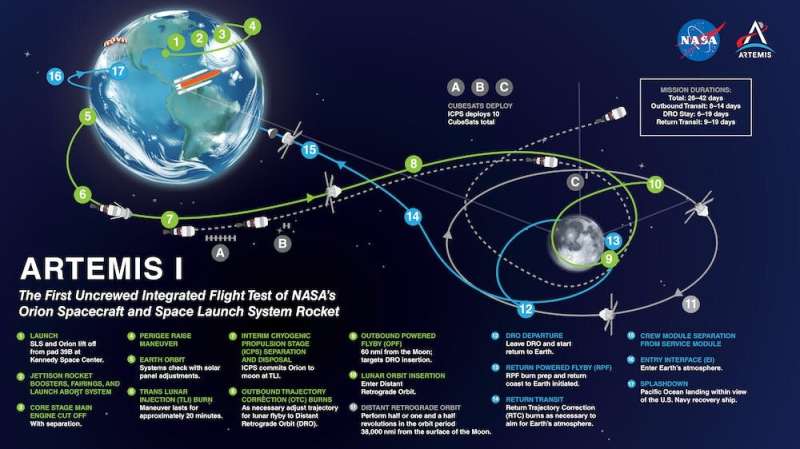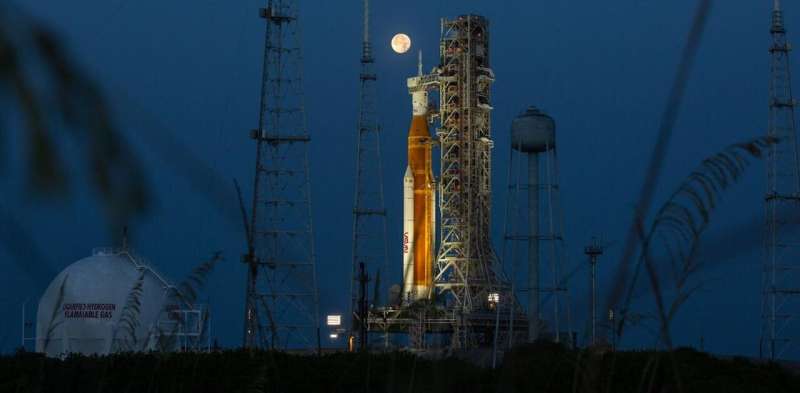With much of the flight path relying on gravity assists (a "swing-by" that uses the momentum of a large body to increase or decrease the speed of a passing craft) from both Earth and the moon, and because we want the Orion capsule to come back safely, the timing is crucial.
Orion must slingshot past the moon, not crash into it, so the positions of the rocket launcher, Earth, moon and lunar capsule must all be known precisely at all times.
It was a similar story with the launch of the James Webb Space Telescope. In this case, mission controllers were making sure it didn't hit the moon on its way to Lagrange Point 2—a gravitationally balanced spot between Earth and the sun. The launch of the telescope was scrubbed a couple of times to avoid bad weather; it eventually launched from French Guiana on an Ariane 5 rocket on Christmas Day 2021.
'Weird' mission lingo
So why is it called "scrubbing" the launch and not canceling it? Turns out there's some fairly specific lingo for space missions.
There are actually five different words used for abandoned space missions. "Scrubbed," "canceled," "scrapped," "retired" and "terminated" all sound alike, but to mission planners they mean different things.
A mission that is "canceled" will not be launched. For example, the International X-ray Laboratory was planned to be launched in 2021 as a joint effort by NASA, the European Space Agency (ESA), and the Japan Aerospace Exploration Agency (JAXA), but due to budget cuts it was canceled. Planning had gone into it, research had been done, but nothing was built. This is a mission cancelation, which usually happens in the developmental stages.
If the mission is part of a program that is axed, this is "termination." So if Russia leaves the International Space Station program, its participation will be terminated, even though the ISS mission continues. This is the same as when NASA terminated participation in the ESA ExoMars mission.

On the other hand, the last Saturn V rockets were "scrapped" when the last three Apollo missions were "canceled." Two Saturn V rockets are on display at Johnson and Kennedy Space Centers, made up of "scraps" from several older rockets and missions.
Finally, we're used to seeing astronauts retire, but the same happens to space missions too. The Mercury, Gemini, Apollo and STS (space shuttle) programs have all been "retired." This means no further missions of that type will occur.
Scrubbed
So, why was the Artemis I launch scrubbed? The expression "scrubbed" is a leftover from the days when mission details were handwritten on a chalk board. If bad weather or equipment failure happened, the mission start time information was wiped off the chalkboard with a damp cloth—scrubbed.
It's still assumed the mission will happen, but it will be rescheduled for a different time.
This is good news for all those eagerly waiting to see moon missions happen again for the first time in 50 years. The Artemis I launch has merely been postponed to the next available launch window.
Explore further
This article is republished from The Conversation under a Creative Commons license. Read the original article.![]()

